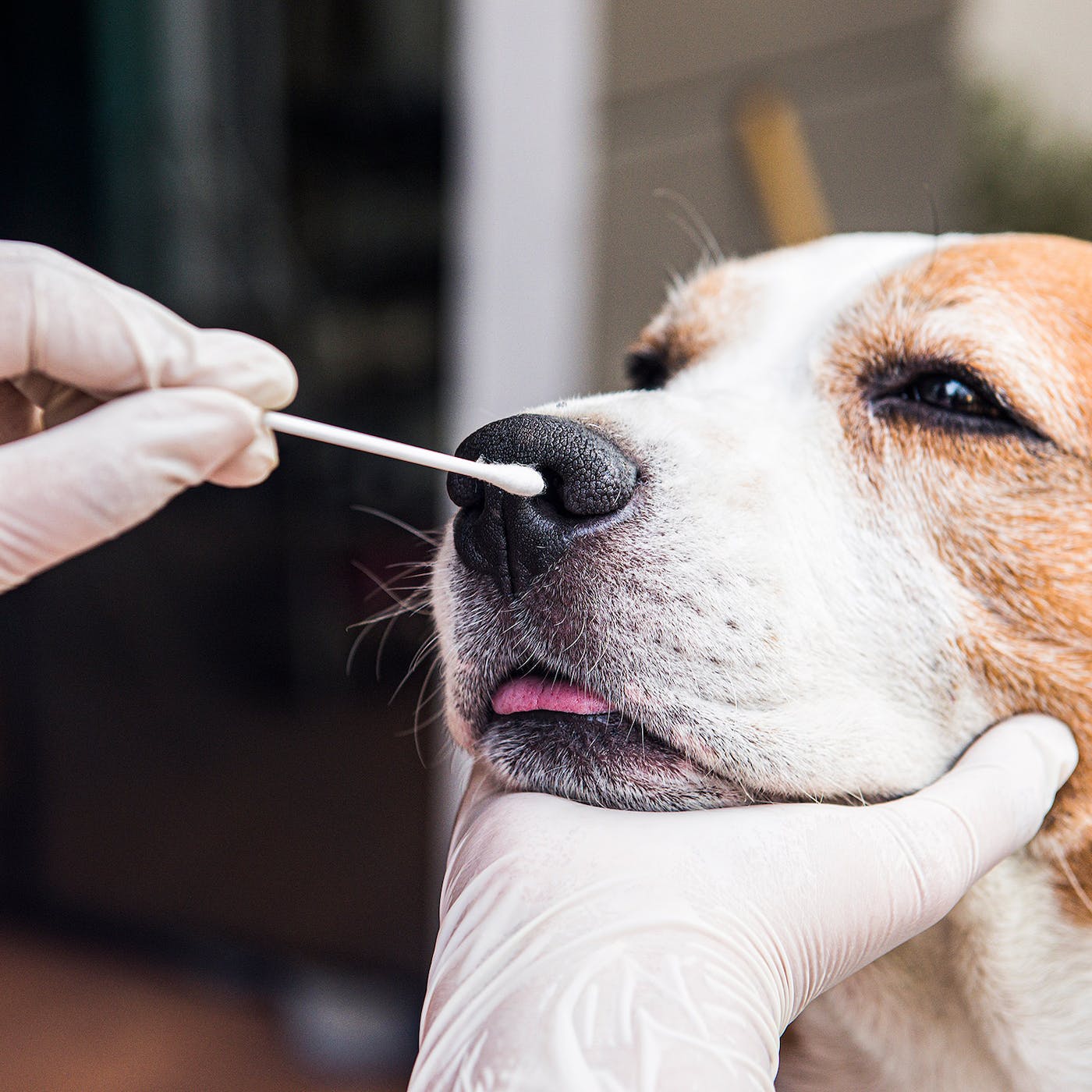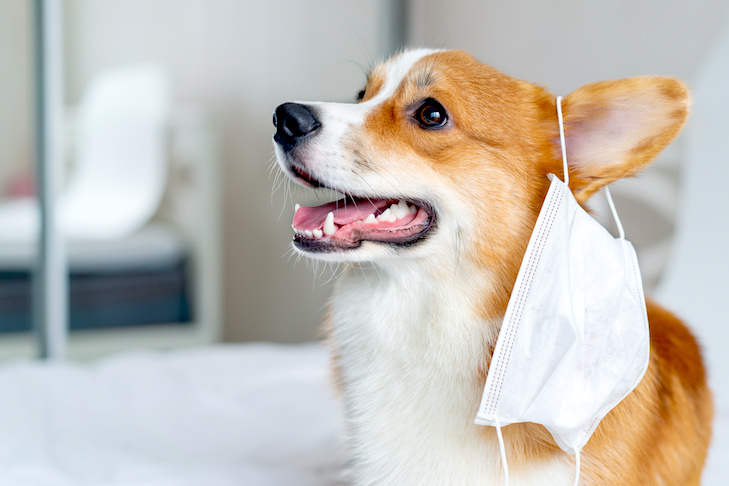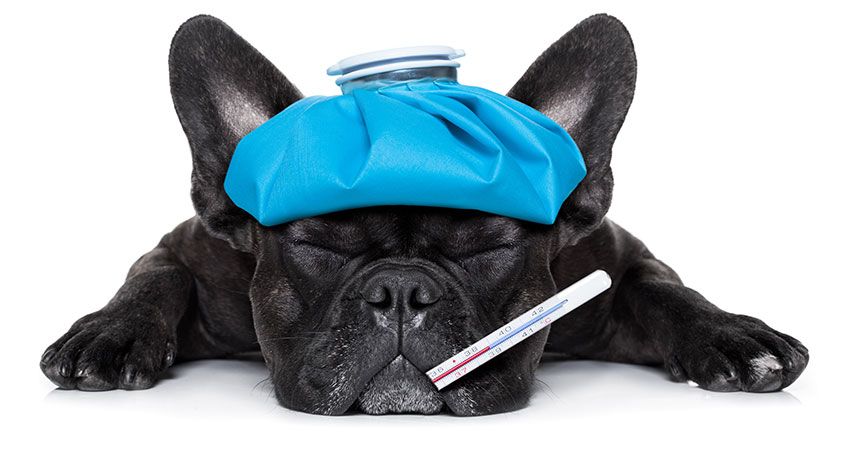
Covid-19 and Dogs
The last few years have been difficult. The global pandemic caught most of us off guard causing fear, worry and confusion.

Initially, veterinarians answered questions for dog owners using knowledge of similar viruses and extrapolating results from human data. Now with the knowledge that time has brought we have more information. But what do we actually know about dogs and Covid 19?
First, can dogs become infected with the SARS-CoV-2 virus that causes Covid 19? The answer is yes, however scientists believe that dogs do not contract the disease as readily as people.
Symptoms seen in dogs sick with Covid 19 include: fever, cough, difficulty breathing or shortness of breath, lethargy, sneezing, runny nose, vomiting, and diarrhea. Many illnesses can cause these symptoms. It is only recommended to test a dog for Covid if they have symptoms and known exposure to a Covid positive individual. If you have concerns for your pet’s health please contact your veterinarian.
The next question is can dogs transmit the virus? It is theorized that they can, but the risk of dog-to-human transmission is believed to be low. The CDC states “There is no evidence that animals play a significant role in spreading SARS-CoV-2. There is no reason to give up or euthanize pets because of SARS-CoV-2.”
So where does that leave dog owners? Do we take our dog to doggy daycare? To the dog park? Do we allow our dogs to sleep in bed with us?
It is up to the individual to decide what they are comfortable with. Your dog is at a lower risk of contracting Covid 19 than you are. And It is more likely that you will catch Covid 19 from another person than your dog. But certainly, some precautions should be taken, especially if young children, the elderly or the immunosuppressed come into contact with your dog. Use your judgment as to how many friends, human and canine, you allow to interact with your dog just as you have decided how much contact you allow yourself with others.
To ensure the lowest risk of your dog becoming infected with Covid 19 doggy social distancing should be practiced. This means leash walking and keeping your dog six feet away from other dogs and people outside of your household.

Washing your hands before and after interacting with your dog and after handling your dog’s bedding, food bowls, and waste is recommended to protect both of you.
Dogs should not be masked as a mask may interfere with their breathing and temperature control and they may not be able to remove the mask on their own.
Do not use any disinfectants not approved for use on dogs to clean your dog. There is no evidence that the virus can be contracted from dog hair or fur.
If you have Covid 19 isolate yourself from your dog. If that’s not possible then keep your contact with your pooch to a minimum. You should wear a mask and wash your hands before and after handling your dog and your dog’s things.
If your dog develops any signs of illness while or shortly after you are sick contact your veterinarian by phone. They will advise you as to what to do. Keep in mind that the vast majority of canine Covid 19 cases are mild and may be treated easily at home.
If your dog tests positive for Covid 19 the CDC recommends adhering to the same protocol used for treating and caring for an infected person at home. Your veterinarian can advise you as to when your dog can come out of isolation and return to their normal activities.
Both the CDC and the AVMA (American Veterinary Medical Association) have websites easily accessible to the public. They can keep you up to date on the latest information regarding Covid 19.
References:
AVMA website, www.avma.org SARS-CoV-2 in animals AVMA
and www.avma.org Covid-19 AVMA
CDC website, www.cdc.gov Animals and Covid-19 CDC
and www.cdc.gov What you should know about Covid-19 and pets CDC
D. DeSimone, MD, Covid 19 and pets: Can dogs and cats get Covid 19? mayoclinic.org
A. Carpenter, R. Ghai, J. Gary, Determining the role of natural SARS-CoV-2 infection in the death of domestic pets: 10 cases (2020-2021); JAVMA Vol.259, Issue: 9, Publication date: Nov. 1, 2021